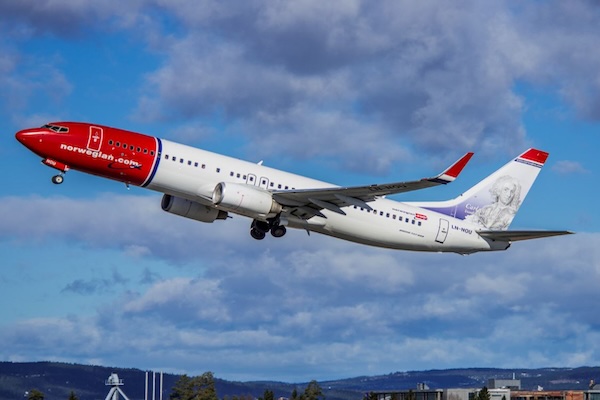Norwegian Air Group showcased resilience in the first quarter, reducing its operating losses by over £10 million. This improvement signals a robust strategic direction amidst typical seasonal challenges.
The acquisition of Wideroe has strengthened the fleet, adding 49 aircraft and enhancing operational capabilities. While challenges like currency fluctuations and winter disruptions impacted results, the group’s liquidity saw a positive trend.
Financial Performance Overview
Norwegian Air Group reported a first-quarter operating loss of £55.7 million, marking a reduction from previous periods. This decrease comes despite the inherent challenges of a seasonally weaker quarter. The completion of the Wideroe acquisition played a significant role in this financial performance, albeit with certain impacts from currency revaluation due to a weaker Norwegian krone.
The group’s net loss was affected by these currency changes, totalling over £9 million. Despite such setbacks, there were signs of financial recovery, particularly in liquidity, partly due to settlements related to the Wideroe acquisition.
Weather conditions during winter, alongside storms, further hampered operational performance. The strategic moves to optimise costs and enhance revenue suggest potential for consistent improvement in forthcoming quarters.
Strategic Expansion and Capacity Management
The addition of 49 aircraft from Wideroe has significantly bolstered Norwegian Air’s fleet. This acquisition marks a strategic expansion phase, allowing the company to explore enhanced service offerings. Norwegian Air aims to integrate these new assets effectively, promising improved service routes and travel options.
Projected fleet capacity for the summer shows an anticipated year-on-year growth of 12%, suggesting optimism for the upcoming travel season. Current capacity was adjusted downward by 13% to align with typical seasonal demand fluctuations.
By aligning capacity with demand, Norwegian Air has shown a thoughtful approach to managing its resources. This strategic adjustment is expected to optimise operational efficiency and maximise profitability during peak and off-peak seasons.
Passenger Growth and Market Dynamics
In the first quarter, Norwegian Air Group carried 4.8 million passengers, with four million served by Norwegian Air and the remainder by Wideroe. This reflects a robust passenger base maintained during challenging months.
Passenger demand received an unexpected boost from Easter travel occurring earlier this year, helping sustain load factors. The upcoming season holds promise as the airline prepares to meet increased traveller interest.
As competition in the aviation sector stiffens, Norwegian Air continues to focus on market dynamics and consumer needs. By leveraging customer data and market insights, the group aims to maintain its competitive edge.
Executive Insights and Operational Synergies
Leveraging strategic partnerships and acquisitions remains a core focus. The group has initiated efforts to forge stronger ties within and outside the aviation industry, enhancing operational capabilities.
Such collaborations are aligned with Norwegian Air’s vision of a comprehensive travel ecosystem, offering superior service and connectivity to passengers.
Challenges and Future Outlook
Despite the progress, Norwegian Air faces ongoing challenges, notably the currency impact and the need for continuous operational adjustments. Addressing these issues requires agile strategies and robust financial planning.
The airline is actively exploring opportunities for operational improvements and cost efficiencies. This proactive stance ensures readiness to tackle future uncertainties while capitalising on identified growth opportunities.
Looking ahead, Norwegian Air’s strategic focus on expansion, customer satisfaction, and operational synergies positions it well for the anticipated busy summer period and beyond.
Innovations and Customer Experience
In addition to fleet expansion, Norwegian Air is investing in customer experience innovations. The airline is enhancing online booking systems and in-flight services to meet evolving traveller expectations.
The focus on passenger comfort and efficiency is aligned with industry trends, aiming to provide an elevated travel experience. A seamless end-to-end journey is prioritised, from booking to arrival.
This commitment to innovation not only enhances customer loyalty but also underscores Norwegian Air’s strategic ambition to be a leading player in the European aviation market.
The Path Forward
With a clear strategy in place, Norwegian Air Group is poised for a transformative year. By embracing change and focusing on core strengths, the group aims to set new benchmarks in the aviation sector.
The strategic initiatives and careful planning of Norwegian Air Group indicate a positive trajectory for the future. As it tackles present challenges, the airline is well-equipped to reignite growth and enhance market share.
Overall, the focus on synergy, innovation, and customer satisfaction could drive Norwegian Air towards achieving its operational and financial goals in the competitive aviation landscape.

